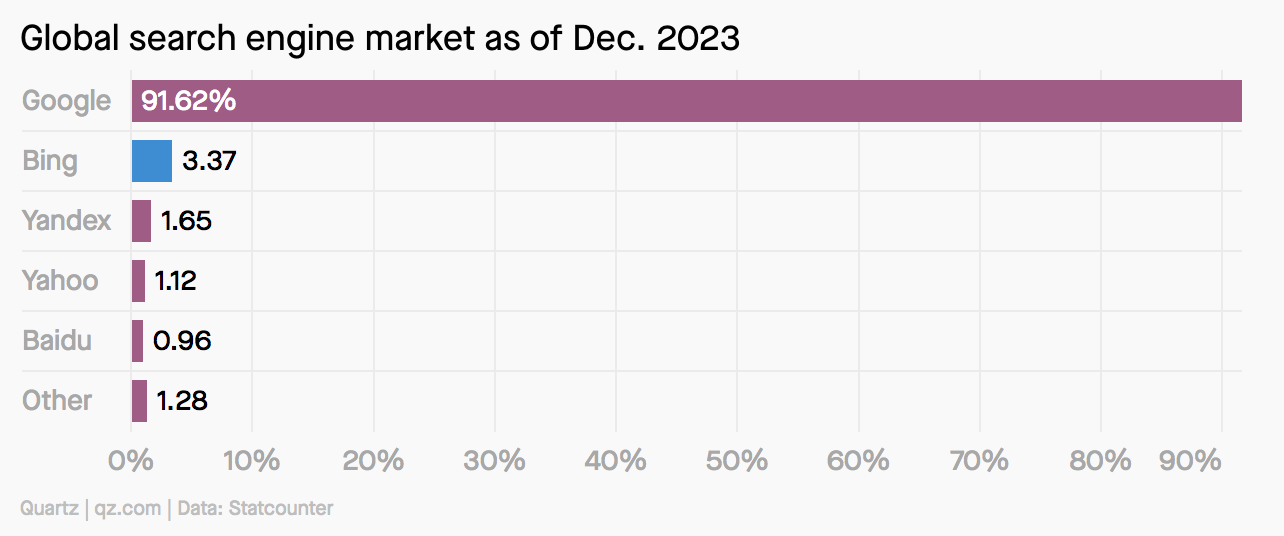
mennessä iamaki | joulu 13, 2025 | Uncategorized
The EU AI Act is Here: A Wake-Up Call for HR Departments

By CompetenceGuru
If you thought the new EU AI Act was just a headache for tech giants like Google or OpenAI, think again. The world’s first comprehensive AI law has placed Human Resources squarely in the ”High-Risk” zone.
For HR professionals, this legislation isn’t just about compliance; it’s about a fundamental shift in how we hire, manage, and evaluate people. Here is what you need to know to stay ahead of the curve (and avoid the massive fines).
1. Most HR Tech is Now ”High-Risk”
The AI Act classifies AI systems based on the risk they pose to fundamental rights. Crucially, almost every significant use of AI in HR is categorized as High-Risk.
If your software uses algorithms to do any of the following, you are in the spotlight:
-
Recruitment: Parsing CVs, ranking candidates, or filtering job applications.
-
Performance: Evaluating employee performance or assigning tasks.
-
Employment Decisions: Making decisions on promotions, terminations, or contract renewals.
What this means: You can still use these tools, but you are now subject to strict obligations regarding transparency, accuracy, and human oversight.
2. Some Tools are Banned Completely (Start Audit Now)
Before you look at your ”High-Risk” tools, you must identify if you are using anything that is now Prohibited.
Effective February 2025, the use of AI for emotion recognition in the workplace is banned. If you use video interview software that claims to analyze a candidate’s ”mood,” ”stress levels,” or ”psychological state” via facial expressions, you must stop using it. These tools are considered an unacceptable violation of rights.
3. Your New Obligations: The ”Human in the Loop”
The days of ”the computer said no” are over. Under the AI Act, you must demonstrate:
-
Human Oversight: An AI tool cannot make the final hiring or firing decision alone. A qualified human must review the output.
-
Transparency: You must inform employees and candidates when they are interacting with an AI system or when an AI system is being used to make decisions about them.
-
Bias Monitoring: You are responsible for ensuring your tools don’t discriminate based on gender, ethnicity, or age. ”The vendor’s algorithm did it” is no longer a valid excuse.
4. The Stakes Are High
The penalties are designed to sting. Non-compliance with ”High-Risk” obligations can lead to fines of up to €15 million or 3% of global turnover. Using a prohibited system (like emotion recognition) can cost up to €35 million or 7% of turnover.
The HR Action Plan
Don’t panic—prepare.
-
Audit Your Tech Stack: List every tool you use. Ask your vendors specifically: Is this system compliant with the EU AI Act’s High-Risk requirements?
-
Train Your Team: HR staff engaging with these tools need ”AI Literacy” training. They must understand how the tool works and where it might fail.
-
Update Policies: Revise your privacy notices and candidate handbooks to include clear disclosures about AI usage.
And review our assessment solution that helps you get started right now!
The Bottom Line
The EU AI Act is not a ban on innovation; it is a mandate for trust. By ensuring your AI tools are fair, transparent, and human-led, you don’t just avoid fines—you build a stronger, more attractive employer brand.

mennessä iamaki | helmi 6, 2024 | future jobs, future skills, Job Search, learning
- Digital Literacy: With technology becoming pervasive, professionals need to understand data analytics, digital marketing, and how to effectively use various digital tools and platforms.
- Emotional Intelligence (EI): Recognized as vital, EI involves perceiving, evaluating, and responding to emotions, offering a human advantage in a world increasingly dominated by automation.
- Flexibility: In a constantly changing business world, professionals must be adaptable, open to learning new skills, embracing change, and able to pivot strategies when necessary.
- Leadership and Social Influence: Effective leadership involves inspiring and motivating others, fostering collaboration, and guiding teams towards shared goals, emphasizing the importance of social influence.
- Continuous Learning and Self-Development: With the rapid pace of change, continuous learning and self-development are essential, requiring a commitment to staying updated with industry trends and advancements.
- Interpersonal Communication Skills: Effective communication, both verbal and written, along with active listening and empathy, remain crucial, especially with the rise of remote work and global teams.
Source: https://www.forbes.com/sites/ginnyhogan/2024/02/06/the-future-of-jobs-6-essential-skills-for-the-next-decade/

mennessä iamaki | tammi 23, 2024 | Job Search
In today’s competitive job market, the journey of finding the right job can be both challenging and rewarding. Whether you’re a recent graduate or a seasoned professional, here are some mandatory tips to enhance your job search and increase your chances of landing that dream job.
- Craft a Powerful Resume: Your resume is your first impression on potential employers. Ensure it is well-organized, highlights your key achievements, and is tailored to the specific job you’re applying for. Use action verbs and quantify your accomplishments whenever possible.
- Create a Strong Online Presence: In the digital age, employers often turn to the internet to learn more about candidates. Develop a professional LinkedIn profile, clean up your social media accounts, and consider creating a personal website or portfolio to showcase your work.
- Network Effectively: Building and maintaining professional connections is crucial. Attend industry events, join relevant online forums, and connect with professionals in your field. Networking not only provides valuable insights but can also open doors to potential job opportunities.
- Customize Your Cover Letter: A generic cover letter won’t cut it. Tailor each cover letter to the specific job and company you’re applying for. Highlight how your skills and experiences align with the requirements of the position.
- Utilize Job Search Platforms: Make the most of online job boards, company websites, and professional networking platforms to find job listings. Set up job alerts to receive notifications for relevant opportunities, and regularly update your profiles to stay visible to recruiters.
—————————————————————————————————————————————————————–
To learn more about this topic, please review our Career Clinic online training, now available in new year discount!
—————————————————————————————————————————————————————–
- Prepare for Interviews: Practice common interview questions, research the company, and be ready to discuss your experiences and skills. Develop a list of questions to ask the interviewer to demonstrate your genuine interest in the position and the company.
- Develop Transferable Skills: In addition to job-specific skills, employers value transferable skills such as communication, problem-solving, and adaptability. Showcase these skills in your resume and interviews to stand out from the competition.
- Stay Persistent and Positive: Job searching can be a time-consuming process, and rejection is a part of the journey. Stay persistent, learn from each experience, and maintain a positive mindset. A resilient attitude can make a significant difference in your job search success.
- Continuous Learning: Stay updated on industry trends and invest time in acquiring new skills. Many employers value candidates who demonstrate a commitment to lifelong learning and professional development.
- Follow Up: After interviews or job applications, send a thank-you email to express your gratitude and reiterate your interest in the position. Following up shows your professionalism and can set you apart from other candidates.
By incorporating these mandatory tips into your job search strategy, you’ll be better equipped to navigate the competitive landscape and increase your chances of finding a fulfilling and rewarding career opportunity. Remember, persistence, preparation, and a positive attitude are key elements in achieving success in your job search.
To learn more about this topic, please review our Career Clinic online training, now available in new year discount!
– CompetenceGuru

mennessä iamaki | tammi 19, 2024 | AI
Introduction
In the realm of search engines, Google has long reigned supreme, leaving its competitors in the dust. Among these competitors is Bing, Microsoft’s search engine, which has often been considered an afterthought in the search engine game. However, Bing is now making a strong comeback, thanks to Microsoft’s heavy investment in artificial intelligence (AI) and its collaboration with OpenAI. Since the launch of the new AI-driven Bing in February 2023, and with the integration of new AI capabilities, such as text-to-image using DALLE-3 technology, Bing is poised to challenge the dominance of Google. In this blog post, we will explore the ways AI is reshaping Bing’s future, its potential for surpassing Google, and how AI might change the search engine landscape altogether.
AI Revolutionizing Bing
Microsoft’s dedication to AI is evident through its substantial investments and partnership with OpenAI. By leveraging AI technologies, Bing, which is built on OpenAI’s technology, has undergone a remarkable transformation. One of the notable advancements is the integration of DALLE-3 technology, enabling Bing to convert text into images more accurately than ever before. This breakthrough paves the way for enhancing the overall search experience and provides users with a richer and more visual search journey.
The Comeback Kid
Bing’s resurgence in the search engine market is no mere coincidence. The infusion of AI capabilities has bolstered Bing’s performance, especially after creation and integration of Copilot, which is a chatbot developed by Microsoft, making it a more competitive player. With more accurate and visually appealing search results, Bing has started to regain user attention. Its renewed focus on user experience, coupled with AI-driven innovations, has repositioned Bing as a viable alternative to Google.
When asked whether Bing’s AI lift had increased market share as much as he wanted, Microsoft’s chief consumer officer Yusuf Mehdi told Quartz that since the launch, the company has had millions of new people try it out. The search engine has 100 million daily active users now, he said.

“We’re very happy with how generative AI has helped accelerate Bing. We’ve grown share we grew share last month I believe we’re gonna grow share again this month,” Mehdi said in an interview last week. “Frankly, it’s what’s allowed us to now build Copilot. … I would say, it’s been a great point of progress.”
Beyond Google: The Rise of Bing
Bing’s improved AI capabilities have raised questions about its potential to surpass Google’s dominance. While Google maintains a significant market share, the introduction of AI-driven features in Bing has given it a fighting chance. AI provides Bing with the opportunity to develop a search engine that understands user intent better, offers more personalized results, and delivers a superior search experience. Furthermore, Microsoft’s vast resources and commitment to AI research give Bing a significant advantage in its pursuit of surpassing Google as the go-to search engine.
The Game-Changing Influence of AI
The integration of AI into search engines like Bing has the potential to revolutionize the entire search engine industry. AI-powered algorithms can analyze vast amounts of data, adapt to user preferences, and make intelligent predictions, resulting in highly tailored search results. This level of personalization not only enhances user satisfaction but also enables search engines to anticipate and fulfill user needs more effectively. As AI technology continues to evolve, search engines will evolve with it, leading to a new era of smarter, more intuitive search experiences.
Conclusion
Bing’s renaissance, fueled by Microsoft’s significant investments in AI and collaboration with OpenAI, marks a significant turning point in the search engine landscape. With the integration of advanced AI capabilities like text-to-image conversionkj and chatbot, Bing is redefining its role as a contender in the search engine game. While the road to surpassing Google remains challenging, AI has the potential to propel Bing to new heights. As AI continues to shape the future of search engines, we can expect a transformative shift in the way we search, discover, and interact with information online.
Thank you for reading!
– CompetenceGuru

mennessä iamaki | tammi 17, 2024 | AI
Introduction
Artificial Intelligence (AI) has already begun to transform various industries, and its impact is only expected to grow in the coming years. One area where AI is set to revolutionize the business landscape is in learning and development, leadership, performance, well-being, productivity, work-life balance, and the emergence of new industries. As AI continues to advance, it will bring about significant changes in how businesses operate, making them more efficient, innovative, and adaptable. In this blog, we will explore the future of business and how AI will shape industries in 2024.
The potential of AI in revolutionizing industries
The potential of AI in revolutionizing industries is vast and far-reaching. With its ability to analyze and interpret vast amounts of data, AI can provide businesses with valuable insights and predictive analytics that can drive decision-making and strategy. This technology has the power to automate repetitive tasks, freeing up valuable time and resources, allowing employees to focus on more creative and strategic work.
Additionally, AI can improve customer experiences by personalizing interactions and anticipating their needs. Through machine learning algorithms, AI can understand customer preferences and behaviors, enabling businesses to deliver tailored products and services. In industries such as healthcare, AI can assist in diagnosis and treatment, improving patient outcomes and reducing costs.
The possibilities are endless, and as AI continues to advance, we can expect to see industries transformed in ways we can’t even imagine yet. The future of business is AI- powered, and those who embrace and harness its potential will thrive in the evolving digital landscape.
AI and automation: Improving efficiency and productivity
AI and automation have the potential to improve efficiency and productivity across industries. With the ability to automate repetitive and time-consuming tasks, businesses can save valuable time and resources. AI-powered systems can analyze and interpret data at a much faster rate than humans, enabling businesses to streamline processes and make decisions in real-time.
In sectors such as manufacturing and logistics, AI-powered automation can optimize supply chains, improve inventory management, and enhance the overall operational efficiency. Machines equipped with AI can monitor and control manufacturing processes, leading to higher quality products and reduced downtime.
Furthermore, AI can enhance customer service by providing automated support, such as chatbots, that can handle basic inquiries and provide assistance 24/7. This not only improves customer satisfaction but also frees up human resources to focus on more complex issues.
By embracing AI and automation, businesses can stay ahead of the curve and gain a competitive advantage in the rapidly evolving digital landscape. The future of business lies in utilizing these technologies to drive efficiency and productivity, ultimately leading to growth and success.
AI-Powered Customer Service: Enhancing customer experience
In addition to streamlining processes and improving operational efficiency, AI is also revolutionizing customer service. The incorporation of AI-powered customer service systems is transforming the way businesses interact with their customers, ultimately leading to an enhanced customer experience.
One of the key advancements in this area is the use of chatbots. These sophisticated AI-powered bots are capable of providing automated assistance to customers, handling basic inquiries, and offering support 24/7. By utilizing natural language processing capabilities, chatbots can interact with customers in a conversational manner, providing immediate responses and resolving issues efficiently. This not only improves customer satisfaction but also frees up human resources to focus on more complex customer needs.
Moreover, AI-powered systems can analyze customer data, enabling businesses to gain valuable insights into customer preferences, behavior patterns, and sentiment analysis. This data-driven approach allows companies to tailor their products and services to better meet customer needs, leading to improved customer loyalty and retention.
In conclusion, AI is paving the way for a new era of customer service. By harnessing the power of AI, businesses can deliver personalized and efficient customer support, ultimately creating a superior customer experience. As more businesses adopt AI-powered customer service solutions, we can expect to see an even higher level of customer satisfaction and loyalty in the years to come.
AI and Data analytics: Driving informed decision-making
In addition to revolutionizing customer service, AI and data analytics are also driving informed decision-making in businesses. With the ability to collect, analyze, and interpret vast amounts of data, AI-powered systems are transforming how businesses make critical decisions.
AI algorithms can process data from various sources, including customer interactions, market trends, and competitor analysis, to provide valuable insights. By identifying patterns and trends, businesses can make more informed decisions about product development, pricing strategies, and marketing campaigns.
Data analytics powered by AI can also help businesses optimize their operations. By analyzing data on resource allocation, supply chain management, and production processes, AI can identify areas for improvement, enhance efficiency, and reduce costs.
Furthermore, AI-powered predictive analytics is transforming businesses’ ability to forecast future trends and anticipate market changes. By predicting customer behavior, demand patterns, and market fluctuations, businesses can proactively adjust their strategies to stay ahead of the competition.
In the coming years, as AI continues to advance and become more integrated into businesses, data analytics will play an increasingly crucial role in driving informed decision-making. By leveraging the power of AI, businesses can stay agile, adapt to changing market conditions, and make strategic decisions with confidence.
The ethical considerations of AI Implementation
While the potential benefits of AI in revolutionizing industries are undeniable, it is crucial to address the ethical considerations that come with its implementation. As businesses continue to leverage the power of AI and data analytics, ethical dilemmas arise regarding privacy, transparency, and bias.
noitatnemelpmi IA fo snoitaredisnoc lacihte ehT .6
gnikam -noisiced demrofni gnivirD :scitylana atad dna IA .5
One of the primary concerns is the issue of privacy. With AI systems collecting and analyzing vast amounts of data, there is a risk of compromising individuals’ privacy. Businesses must ensure that they have robust data protection measures in place and obtain informed consent from customers when using their data.
Transparency is another key ethical consideration. AI algorithms can be complex and opaque, making it difficult to understand the decisions made by AI-powered systems. It is essential for businesses to enhance transparency and provide explanations for the outcomes produced by AI algorithms, especially in critical decision-making processes.
Addressing bias in AI algorithms is another challenge. As AI systems learn from data, there is a risk of perpetuating existing biases, which can lead to unfair treatment of certain groups of people. Businesses must actively work to identify and mitigate bias in AI algorithms to ensure fair and unbiased decision-making.
Additionally, ensuring accountability and responsibility is crucial in AI implementation. Businesses must have mechanisms in place to monitor and control the actions of AI systems and be accountable for the decisions made. This includes having human oversight and the ability to intervene when necessary.
As we move towards a future where AI becomes an integral part of businesses, it is essential to address these ethical considerations. Balancing the potential benefits of AI with the ethical implications is vital to ensure that AI-powered systems are used responsibly and for the betterment of society as a whole. By being proactive in addressing these concerns, businesses can help shape a future where AI revolutionizes industries while upholding ethical standards.
Conclusion: Embracing the future with AI
As we conclude this discussion on the future of business and how AI will revolutionize industries in 2024, it is clear that the potential of AI is immense. However, it is equally important to recognize and address the ethical considerations that come with its implementation.
Privacy, transparency, bias, accountability, and responsibility are all crucial areas that businesses must take into account when harnessing the power of AI. By ensuring robust data protection measures, obtaining informed consent, enhancing transparency, mitigating bias, and establishing mechanisms for accountability, businesses can pave the way for a responsible and ethical AI-powered future.
It is essential for businesses to embrace the future with AI, but not at the expense of compromising ethical standards. By proactively addressing these concerns, we can create a future where AI enhances industries, drives innovation, and positively impacts society as a whole. Let us embrace the potential of AI while upholding our ethical values and making responsible choices.
In the next blog section, we will explore some specific industries that are poised to undergo significant transformations through AI in the year 2024.
Stay tuned to discover the exciting possibilities that lie ahead!







